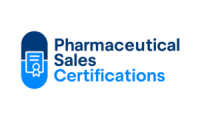Level Up Your Career in Pharmaceutical Sales
The pharmaceutical and healthcare industries are shifting to a skills-based economy. In today’s competitive market, your ability to gain and apply new skills matters more than your degree. Certifications are becoming the key to standing out and getting hired.
Why Skills Now Outrank Degrees
We are living in a skills-based economy and especially in the healthcare industry. Businesses and individuals prioritize skills to determine professional value – a shift from the traditional outlook of valuing levels of education and experience above anything else.
Individuals’ skills and ability to acquire new ones are currency in today’s competitive employment and workforce marketplace. Demographic factors like the retirement of the Baby Boomer generation and disruptions caused by the acceleration of emerging technology require pharmaceutical and biotech companies to ensure they have a workforce equipped to thrive in the years to come.
Pharmaceutical companies need more skilled pharmaceutical sales professionals in emerging areas and an approach that enables ongoing, flexible online training and retraining to stay ahead of the curve.
In a rapidly transforming world, a degree provides a good foundation. Still, barriers to entry, including cost, accessibility, and time, coupled with skills that need to be learned on the job, underscore that degrees are only one piece of the puzzle. The solution to the skills gap is refocusing on certifications beyond traditional degrees.

The New Focus in Organizations
At the heart of the challenge is that the nature of work is accelerating rapidly, with emerging technologies, AI and automation, sustainability, hybrid work, and geopolitical dynamics at play.
Companies must ensure that professional certification programs exist to help employees continue to hone and develop the skills most required for success in their organization.
In doing so, they will be better positioned to attract and hire the best and most qualified candidates for their organizations in an increasingly competitive market.
The Future is in Flexible Credentials
While the demand for talent is high, the barriers to entering many fields are still preventing individuals from taking advantage of available job opportunities.
As a result, employers and business leaders are finding recruits from diverse backgrounds across different areas of expertise.
So, how are they bridging the skills gap for the sector they are trying to enter? One effective way is through professional certifications.
Pharmaceutical Sales and Medical Sales certifications enable potential employees to demonstrate their expertise by successfully passing a rigorous exam(s) on relevant and timely industry-specific subject matters.
As pharmaceutical and medical device companies evolve with ever-advancing technologies and the latest innovations, the ground rules for hiring viable candidates are also changing. Pharmaceutical and medical equipment companies need to develop workforces that understand new ideas and technologies, allowing them to stay relevant in a quick-paced technological age in which: In the next five years, 23 percent of global jobs will change due to industry transformation.
Ongoing, more flexible certification courses that refresh skilled professionals in line with wider change will increase employee productivity, attract potential new hires, and increase retainability for those with the company.
In addition to helping organizations by equipping staff with essential new skills, organizational support for continuing education in the form of certifications and other shorter-term courses and programs also shows commitment from organizations when their employees are actively working to grow their existing abilities, keeping them ahead of competitors and promoting continuous learning to expand their skillsets.
Why A Shift in Mindset For Industry Certifications
However, for pharmaceutical recruitment managers and biotech hiring managers, there is a major shift to taking industry certifications so seriously and away from traditional academic degrees.
The challenge for professionals, though, is that organizations will not pay for industry certifications and put that upon an applicant just like a person would pay for their own college degree and especially now, particularly when budgets shrink.
On the flip side, employers may be reluctant to invest in these programs for fear of employees leaving the organization once they have the new training and development to get a more attractive position elsewhere.
But, given the need to fill gaps left by retiring boomers and the acceleration of technology creating the need to upskill quickly, serious consideration must be given to a new mindset of looking at employee qualifications.

Ready to Start Your Career in Medical or Pharmaceutical Sales?
Get certified online, on your schedule. Our team is here to support you from start to finish.


